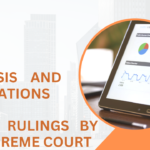Refinancing your home loan can help you secure a lower interest rate, reduce your monthly payments, shorten your loan term, or access your home’s equity. However, refinancing comes with closing costs that can range from 2% to 6% of your loan amount. This guide examines the key factors that influence refinance costs and provides tips for getting the best deal.
Thank you for reading this post, don't forget to subscribe!Closing Costs
Closing costs typically range from 2% to 6% of your new loan amount. On a $200,000 loan, you could pay $4,000 to $12,000 to finalize the refinance. Closing costs break down into various fees charged by lenders, appraisers, title companies and more. Expect to pay for:
- Origination fee
- Appraisal fee
- Credit report fee
- Title search and insurance
- Recording fees
- Attorney fees
- Taxes and insurance
Interest Rates
Interest rates have a direct impact on refinance costs. When rates are low, demand for refinancing is high, leading to inflated closing costs. Rates below 3% tend to produce the highest refi costs. Wait for rates over 4% before refinancing to avoid excessive fees.
Loan Amount
The size of your new loan also influences overall refi costs. Assuming similar interest rates and terms, refinancing a higher loan amount leads to higher closing costs. Calculate costs as a percentage of your requested loan amount to accurately compare refi loan offers.
Loan Term
Longer repayment terms tend to have lower monthly payments but higher total interest charges over the life of the loan. When deciding on a refi term, weigh your budget needs against total costs. 30-year terms have higher costs than 15-year loans.
Lender Type
Online and national lenders tend to offer lower closing costs than regional banks and credit unions. Compare quotes from multiple lenders—including small and large institutions—to find the best fit for your situation. Online lenders sometimes waive appraisal and origination fees.
Location
Home prices and property taxes vary widely across the U.S. If you live in a state or metro area with high home values and high annual taxes, you’ll typically pay higher closing costs and fees to refinance. California and New York have among the highest refi costs.
Credit Score
Borrowers with credit scores under 620 often pay higher interest rates and Origination fees. Applicants with scores of 720+ tend to qualify for the lowest rates and best overall loan terms. Before applying, check your credit reports and try to improve your score.
Cost-Saving Tips
The best way to reduce refinancing costs is to improve your credit, choose shorter loan terms, and compare multiple lender quotes. Also:
- Ask lenders to match or beat competitor offers
- Pay for your own appraisal if quoted fees are high
- Offer a higher down payment to reduce LTV ratio
- Avoid high-fee loan options like cash-out refinancing
- Close at the very start or very end of the month
Following these tips can potentially slash thousands off your refinance closing costs.
Should I Refinance?
With closing costs running 2-6% of your new mortgage, is refinancing still worthwhile? Use the following criteria to decide:
- You plan to stay in your home for several more years
- Interest rates are at least 1% lower than your current mortgage
- You have strong credit scores to qualify for the best rates
- Monthly savings exceed your breakeven refi point
Input your details into an online refinance calculator to determine if you’ll save enough to justify refinancing.
Refinance Break-Even Horizon
Your break-even point is the time it takes to recoup refinancing closing costs through lower monthly payments. For example:
| Loan Details | Current Mortgage | New Mortgage |
|---|---|---|
| Interest Rate | 4.5% | 3.25% |
| Monthly Payment | $1,000 | $915 |
| Closing Costs | n/a | $6,000 |
| Break-Even | n/a | 6 years |
This fictional borrower pays $6,000 in upfront fees but saves $85 per month with the lower interest rate. It takes around 6 years (72 monthly payments) of those savings to break even on closing costs.
As a rule of thumb, you should generally plan to stay in your home for at least 3-5 years post refinance to make the move pay off.
Frequently Asked Questions
Still have questions about the cost to refinance your home? Here are answers to some common queries:
Why are refinancing costs so high?
Refinancing requires the same level of underwriting and documentation as a new home purchase. You’ll pay fees for the lender’s origination work, title insurance and tax checks, and more – which quickly adds up.
Can closing costs be rolled into the new loan amount?
Yes! Nearly all lenders let you roll costs into the loan balance. That way you don’t pay anything upfront. Keep in mind that doing so raises your principal and monthly payments.
Do mortgage points lower interest rates?
Yes, paying points upfront can secure a lower mortgage rate and faster payback period. Each point equals 1% of the loan amount. Paying 2 points on a $200k loan would equal $4,000 due at closing.
Can I deduct refinancing costs from my taxes?
If you use the new loan to make home improvements, you may qualify for tax deductions on certain closing fees when you file. Consult a tax advisor to understand deductions.
How can I get sellers to cover my refi costs?
Some buyers ask sellers for help with refinancing costs or other expenses post-closing through a seller credit arrangement. Offering this incentive when negotiating may persuade sellers to agree to a credit.
In The End
Refinancing can provide huge interest savings over the life of your home loan – but upfront closing costs present a major barrier for many borrowers. Carefully weigh the breakeven timeline and make an informed decision about whether refinancing matches your financial situation and goals.










